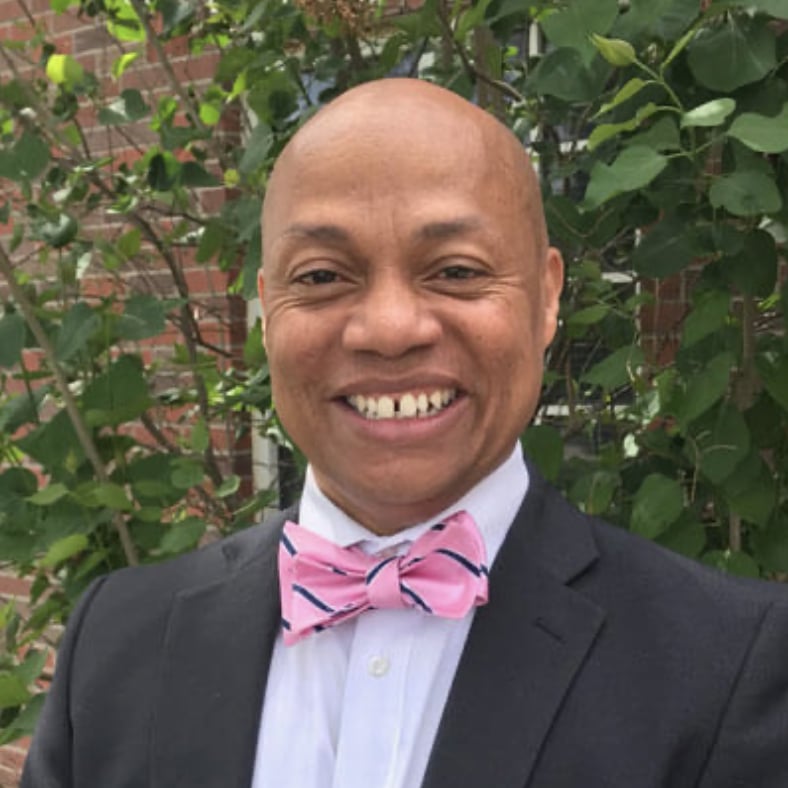Many of you are familiar with some of the most powerful Bible expositors within reformed circles, such as MacArthur, Lawson, and Baucham. Few of you are as familiar with Pearson, Thompson, and Dollar; well, maybe you recognize Dollar’s name. While many of you have experienced the sound Bible teaching of the former, the latter represents a shortlist of the prosperity preachers for which I was familiar long before I heard my first Voddie Baucham sermon.
For those unfamiliar with the latter list, I want you to imagine teaching so far from Biblical exposition that it’s associated with the false teachings of the word of faith movement. For the better portion of my Christian walk, I was an active participant in this false movement.
During the heyday of Bishop Carlton Pearson’s Azusa Street Conferences, I was in ministry at Pearson’s church—Higher Dimensions Evangelistic Center in Tulsa, Oklahoma. Pearson’s brand of Bapticostal expression served up large doses of experiential teaching which far too often was less than an inch deep on theology or doctrine. Most of the 30,000+ attendees at the conference were there for the concert like atmosphere and preaching, which was strong on homiletics, but weak on hermeneutics.
What God uses to move us away from false prosperity teaching to walk in the light of the true gospel may vary. However, the heart-piercing call of God on those who are His is consistent.
Over the past decade, as I’ve been in reformed circles, I’ve learned that my experience is not unique. I’ve talked to many people who were once involved in some form of the prosperity gospel. While my proximity to people like Oral Roberts, Kenneth Hagin, Kenneth Copeland, and others might be different, the story from those who have experienced their false teaching is the same. My friend Costi Hinn, now solidly reformed in his theology, knows this all too well as Benny Hinn’s nephew. Costi’s book, God, Greed, and the (Prosperity) Gospel expresses the familiar story of those who have walked away from this false theology and into the light of the Gospel of Grace.
What God uses to move us away from false prosperity teaching to walk in the light of the true gospel may vary. However, the heart-piercing call of God on those who are His is consistent. Jesus expressed this truth to the Jews in this way, “My sheep hear my voice, and I know them, and they follow me. I give them eternal life, and they will never perish, and no one will snatch them out of my hand” (John 10:27–28 ESV).
The 1689 London Baptist Confession of Faith expresses the miraculous work of God in this way:
“Those whom God hath predestined unto Life, he is pleased in his appointed and accepted time, effectually to call by his word, and Spirit, out of that state of sin, and death, in which they are by nature, to grace and Salvation by Jesus Christ; enlightening their minds, spiritually, and savingly to understand the things of God; taking away their heart of stone, and giving unto them a heart of flesh; renewing their wills, and by his Almighty power determining them to that which is good, and effectually drawing them to Jesus Christ; yet so as they come most freely, being made willing by his Grace.”
God chooses the means by which we come to a saving knowledge of His grace. As for my story, Salvation was apprehended despite the Prosperity Gospel and not because of it.
Doctrine informs how we live. Theology establishes our worldview and provides the lens through which we see every area of life. There is no aspect of our human experience that isn’t impacted by what we think about God.
As my wife and I wrestled through decades of false teaching, we would come into contact with a video by Justin Peters. I watched the 50-minute chapel talk that Justin delivered at Southwestern Baptist Theological Seminary with great interest. Afterward, I spent the next few weeks watching everything with the name Justin Peters on it. My wife and I would stay up late pouring through Scripture like the Bereans (Acts 17:11), trying to determine if what we heard from Justin was true. That was more than eight years ago.
Why Theology Matters
One of the things that my wife and I learned during this period was how much theology matters. Doctrine informs how we live. Theology establishes our worldview and provides the lens through which we see every area of life. There is no aspect of our human experience that isn’t impacted by what we think about God. False teaching perverts a clear view of the nature of God. The human heart’s sinfulness will frequently replace God’s centrality with man’s preeminence. In the prosperity Gospel, man is the center of creation, and God serves as a divine butler providing what we name and claim for consumption.
The key to replacing bad theology with solid Biblical theology was understanding the use of proper Biblical hermeneutics. Three basic ideas that helped us develop a solid grasp of Biblical theology were context, context, and context. Most straightforwardly, I learned never to read a Bible verse (alone). Instead, we spent time reading what came before and after the verse of Scripture being used so that we can understand what the writer of the text was saying. This process would clear up the vast majority of the false teaching we had been consuming for years.
Later, one of the best resources that we used was David Helm’s book, One to One Bible Reading. This small book helped us to understand how to study the Scripture by asking the right questions. I recommend his book to anyone learning how to study the Scriptures for themselves.
Finally, we tested what we learned systematically and historically. As we landed on sound doctrine, we studied to know if the whole of Scripture taught that same doctrine. We also wanted to examine historical theology to see if the same principle held throughout church history. We held tightly to the notion that if an idea was new, it probably was not true.
The most important thing we learned during those years was that this process takes time. We didn’t become theological experts overnight. The result was a growing understanding of who God is and this process deepened our worship of God in greater ways than ever before.
From the time my wife and I watched our first Justin Peters video many years ago, I’ve since had the unique privilege of meeting Justin Peters during the G3 Conference in 2018. During that time, I expressed a heart-felt and emotional “thank you” for allowing God to use him in such a profound way. I’m grateful for Justin’s continued work in this area and pray that others are impacted in the same way as they grow to understand, Theology Matters.





